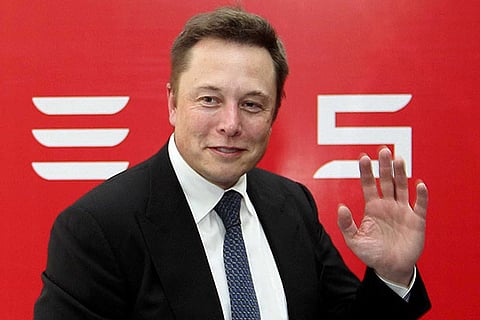

London: Those are “the 26 words that created the internet,” says Jeff Kosseff, an associate professor of cybersecurity law at the United States Naval Academy, who wrote a book with that title that came out in 2019. The fruitful words come from Section 230 of the Communications Decency Act. That brief passage fuelled the growth of social media platforms such as Twitter and Facebook by protecting them from lawsuits over content posted by users of their platforms.
Nearly three decades later, conservatives and liberals are equally unhappy with Section 230, but for opposite reasons, says Mary Anne Franks, a professor at University of Miami School of Law. Liberals, for the most part, don’t like those 26 words because they feel they have permitted the platforms to host and even promote hate speech, unfounded conspiracy theories, racism and other objectionable content that attracts eyeballs and makes money.
Conservatives and libertarians, for the most part, dislike the next section, which protects the platforms when they take down objectionable material. It says the platforms can’t be held civilly liable if “in good faith” they remove content they deem “obscene, lewd, lascivious, filthy, excessively violent, harassing, or otherwise objectionable, whether or not such material is constitutionally protected.” The conservatives and libertarians argue that platforms such as Twitter are using Section 230 to suppress their freedom of expression.
Now comes Elon Musk, the richest man in the world, with an offer to buy Twitter at a valuation of about $43 billion. (The company on Friday moved to make it more difficult for any single investor to amass a large stake.) It’s difficult to know anything for sure about Musk, but if he does buy Twitter it’s a good bet he’ll reduce content moderation. “I think it’s very important for there to be an inclusive arena for free speech,” Musk said Thursday at a TED conference. He might also end the “permanent” suspension of former President Donald Trump, which was imposed after the invasion of the Capitol on Jan. 6, 2021.
But no matter how smart and rich he is, Musk can’t rid the web of the problems that Section 230 was meant to address. It would be crazy, and counterproductive, for Musk to end all content moderation. Twitter would soon fill up with not-quite-illegal sexual material, deceptive sales pitches, trolls and other garbage that would drive away users and wreck Twitter’s market and consumer value. No platform can reasonably promise unadulterated free speech. Trump’s faltering Truth Social platform, which claims to be a “big tent,” threatens to ban users whose contributions are, borrowing from Section 230, “obscene, lewd, lascivious, filthy, violent, harassing, libellous, slanderous, or otherwise objectionable.” (“Otherwise objectionable” is a capacious phrase.)
So a Musk-owned Twitter would still ban content — it would just ban less of it. I can imagine more tweets falsely claiming that the Capitol invasion was a media invention or a false-flag operation. Franks, the law professor, speculates as others have that Twitter under Musk would actually be more likely to restrict content that angered one particular person — Musk himself. Likewise, Trump’s Truth Social platform is unlikely to become a home for critics of Trump.
For now, the fight over what to do about Twitter and other platforms is at a stalemate. Whether or not it’s owned by Musk, Twitter can’t overcome the deep divisions and mistrust in society, said Eric Goldman, a law professor at Santa Clara University. It can turn the content moderation up and please liberals or turn it down and please conservatives and libertarians, but “there’s no place on that slider that will make all the partisans happy,” he said.
Coy is an Opinion Writer with NYT©2022
The New York Times
Visit news.dtnext.in to explore our interactive epaper!
Download the DT Next app for more exciting features!
Click here for iOS
Click here for Android